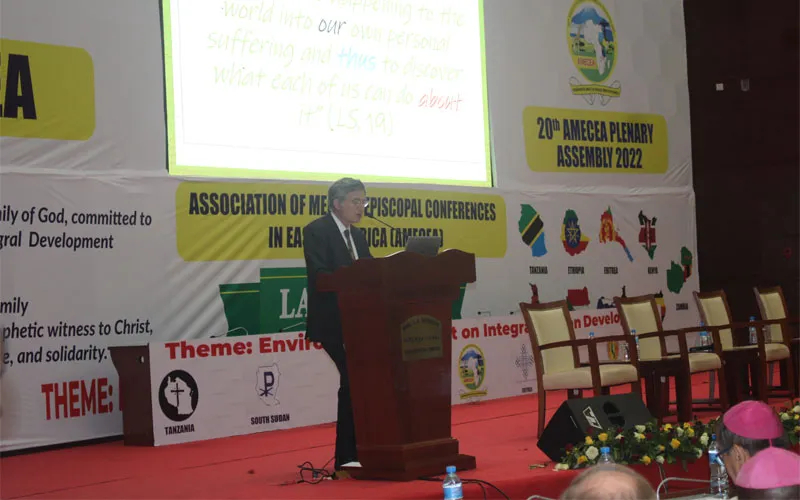Dar es Salaam, 13 July, 2022 / 9:40 pm (ACI Africa).
The gathering, production, and dissemination of news reports has the ability to “help spread ecological ethics”, the Prefect of the Vatican’s Dicastery for Communication has said.
Addressing delegates of the 20th Plenary Assembly of the Association of Member Episcopal Conferences in Eastern Africa (AMECEA) on Tuesday, July 12, Dr. Paolo Ruffini said that communication has the ability to build or destroy “a responsible awareness about” crises, including that of climate change.
“Communication can help spread ecological ethics and contribute to the flourishing of a global ecological citizenship through the production, collection, sharing of news, good practices, experiences, wisdom of peoples, among others,” Dr. Ruffini told AMECEA delegates who are gathering in Dar es Salaam, Tanzania for their nine-day Plenary Assembly set to conclude on Sunday, July 17.
The Vatican official said that “Many problems of today’s world stem from the tendency, at times unconscious, to make the method and aims of science and technology and epistemological paradigm which shapes the lives of individuals and the working of society.”
“Technology products are not neutral for they create a framework which ends up conditioning up lifestyles and shaping social possibilities along the lines dictated by the interest of certain powerful groups,” Dr. Ruffini further told AMECEA delegates who have met to reflect on the care for the environment in the Eastern Africa region under the theme, “Environmental Impact on Integral Human Development”.








